How to decorate with antique textiles – designers share their tips for adding character with old fabrics
Add a dose of unique appeal to your schemes by introducing antique textiles – you won't regret it

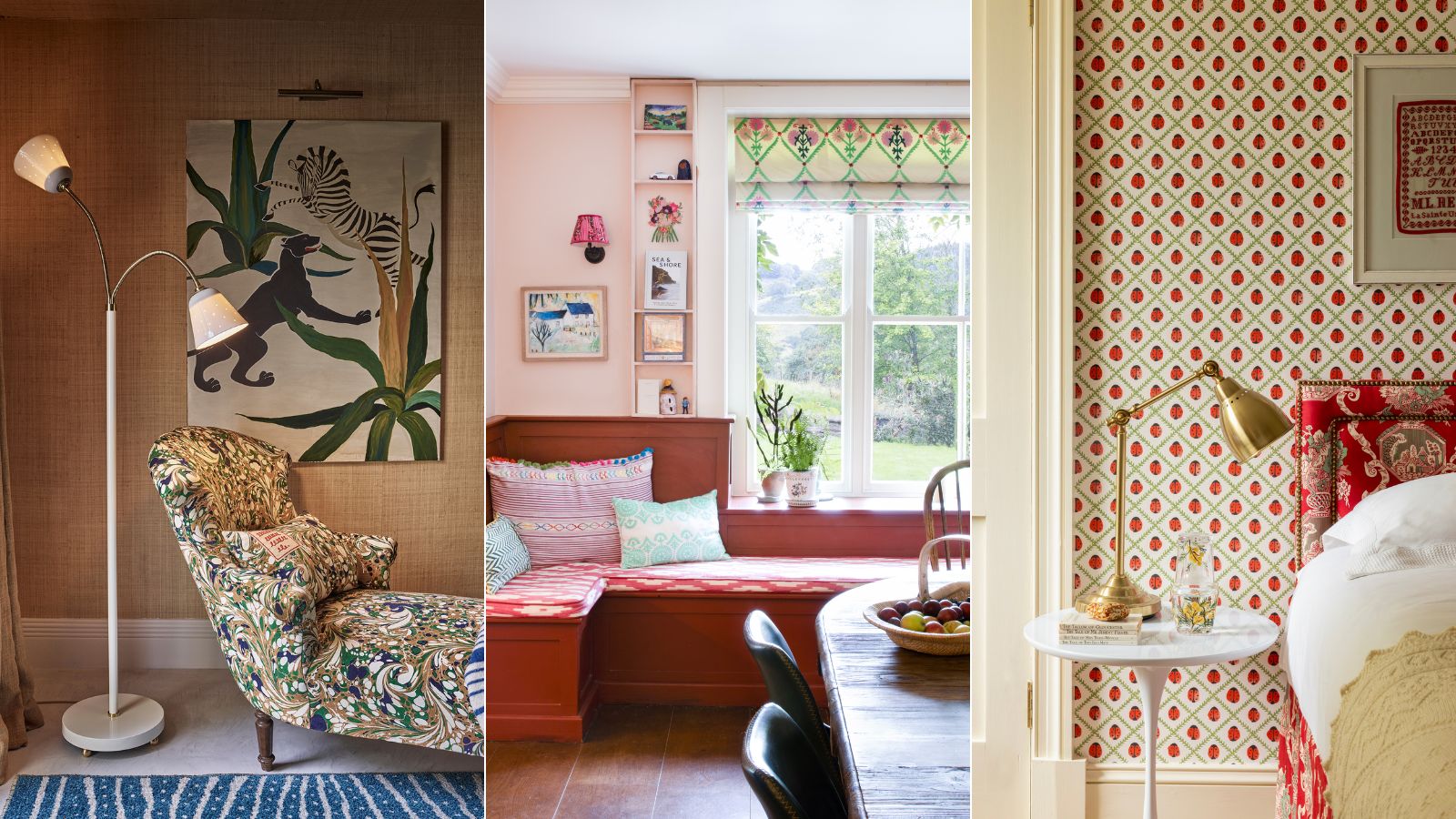
Design expertise in your inbox – from inspiring decorating ideas and beautiful celebrity homes to practical gardening advice and shopping round-ups.
You are now subscribed
Your newsletter sign-up was successful
Want to add more newsletters?

Twice a week
Homes&Gardens
The ultimate interior design resource from the world's leading experts - discover inspiring decorating ideas, color scheming know-how, garden inspiration and shopping expertise.

Once a week
In The Loop from Next In Design
Members of the Next in Design Circle will receive In the Loop, our weekly email filled with trade news, names to know and spotlight moments. Together we’re building a brighter design future.

Twice a week
Cucina
Whether you’re passionate about hosting exquisite dinners, experimenting with culinary trends, or perfecting your kitchen's design with timeless elegance and innovative functionality, this newsletter is here to inspire
As we endeavor to introduce personality into our homes, decorating with antique textiles has become all the more popular. But there is much to consider when introducing these pieces to your space, both aesthetically and practically.
Decorating with antiques is nothing new, but there is certainly a renewed appreciation. Adding a sense of old meets new and offering unique appeal in a scheme, these age-old pieces are finding a new lease of life in interior design.
Antique furniture and ceramics have long been sought, but antique textiles are beginning to make their mark as more people realize how much of an impact they can have in a scheme.
Here, we turn to experts to learn everything you need to know about decorating with antique textiles, from their favorite styles to what you need to consider.
Should you decorate with antique textiles?
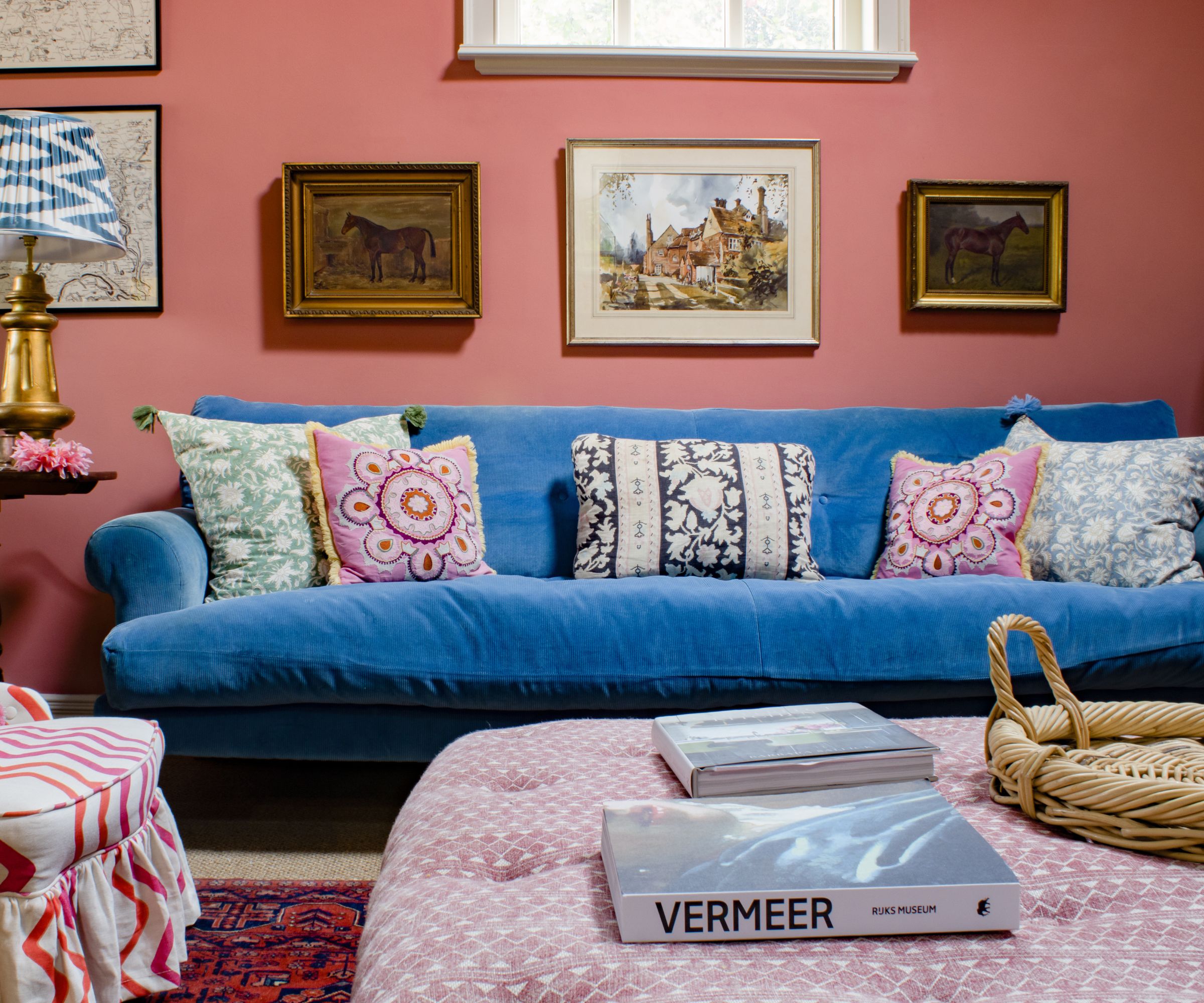
Decorating with antique textiles can add so much to your interiors – offering unique appeal and interesting texture, they perfectly encompass the idea of lived-in style and infuse homes with character and personality.
'One of the best things about using antique textiles is that it makes a scheme unique to you. A scheme that reflects your taste, rather than everyone else's, will also have far more longevity as you won’t date, but a trend might,' says interior design consultant Lucinda Griffith.
Decorating with a mix of old and new has been a preferred way to design a scheme for a while now, and antique textiles inject that sense of old into any space, especially if you choose a fabric that adds something unexpected.
Design expertise in your inbox – from inspiring decorating ideas and beautiful celebrity homes to practical gardening advice and shopping round-ups.
'If you want to add a layer of comfortability and sophistication to your space, you can't go wrong with an older bolt of fabric. If you find something with multiple yards, snag it because you likely won't see it again,' says Samantha Stathis-Lynch, of Samantha Ware Designs.
It's the individuality that antique textiles bring to schemes that make them all the more appealing, whether they're used as a wall hanging or to upholster soft furnishings.
'When we frequently see the same prints and wallpapers used, decorating with an antique textile can make a room feel more fresh and unique. Antique textiles bring depth and patina to any scheme,' says Jessica Lev, of Jessica Lev Antiques.
If you're keen to decorate with antique textiles, Lucinda adds that they can 'inspire a scheme you might not have considered if you were using something you have already seen done a hundred times, as the risk is that you will copy what you have already seen done before.'
What should people consider when decorating with antique textiles?
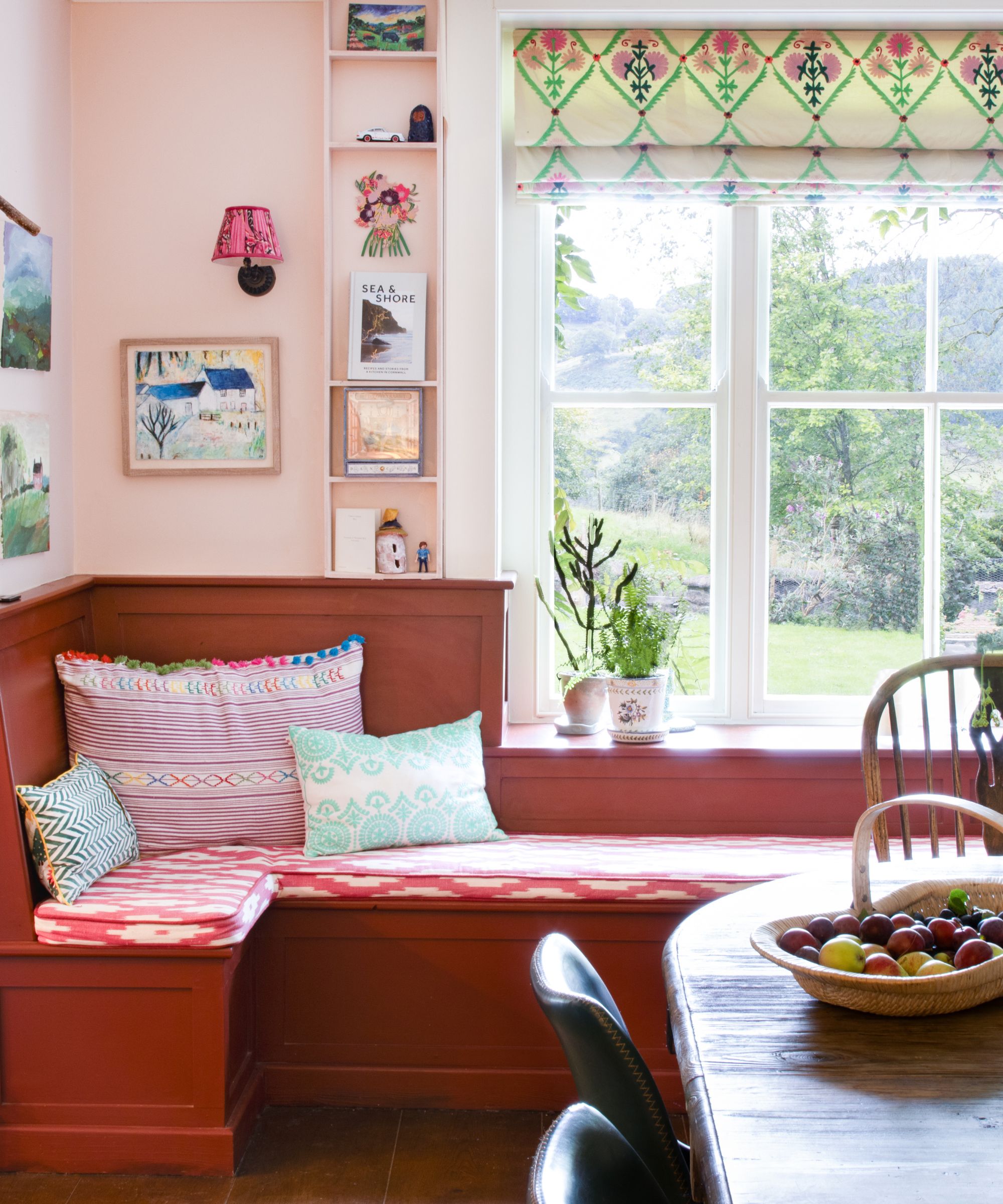
There are, however, a few practical considerations when decorating with antique textiles. 'They are fragile and will be harder to clean, so it is better to use them in lower-traveled areas,' says Jessica. As well as their fragility, Lucinda adds that you should check for stains and moth damage.
'Use them more like statement pieces to create interest in a space. They are more artistic than practical, so their placement should be strategic considering the maintenance and care required. They should also be kept from direct sunlight and away from high humidity,' adds Miami-based designer Ania Agárdy.
If you do come across a beautiful fabric that looks as though it's seen better days, you might be able to (almost) bring it back to its former glory. 'Take it to your local dry cleaner to see what they say. If they're unable or not confident that they can properly clean the fabric without damaging it, it could be worth your while to reach out to someone who specializes in restoring such textiles,' suggests Samantha.
Once these less glamorous necessities have been considered, it's all about how you will introduce antique textiles into your space. 'It then comes down to whether your piece is the focal point of your scheme or an accent to an existing one,' says Lucinda.
It's also important to consider scale – antique textiles are often one of a kind, so the quantity you find is what you have to work with. 'If they are small pieces, then cushions can be an obvious choice. You can back the cushions with a contrasting fabric to get more out of it,' Lucinda suggests.
'Don’t be afraid to cut the fabric up either. If you don’t have enough to cover a chair or make curtains, is there enough to form a border with it?'
How to decorate with antique textiles
There are so many beautiful and stylish ways to decorate with antique textiles. Of course, how you use your fabrics will depend on their condition and how they need to be cared for, but there's an idea here for every taste, style, and fabric condition.
1. Hang antique textiles on the wall
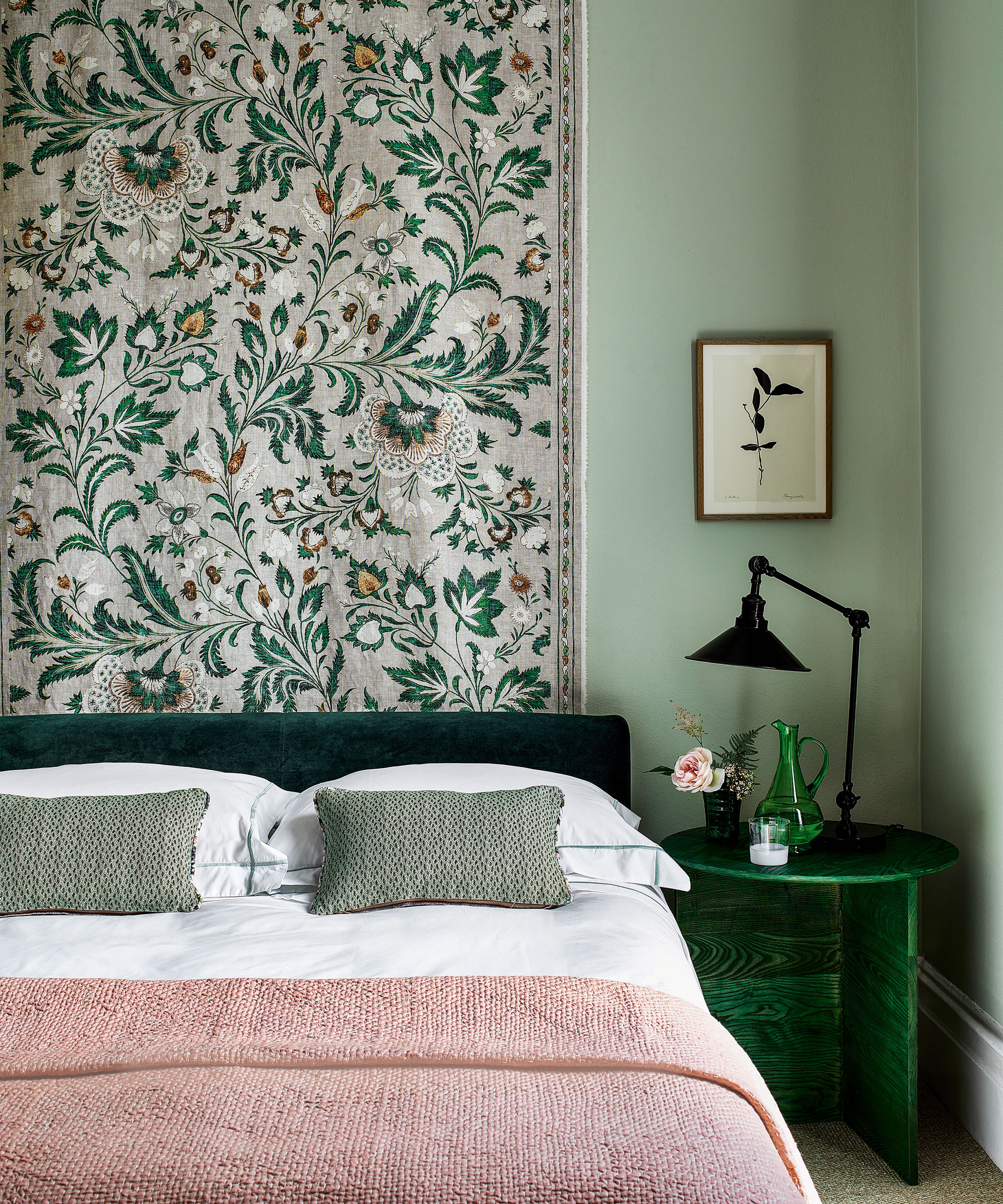
Once a go-to wall decor idea, using antique textiles to decorate a room in place of artwork makes a beautiful statement and adds an abundance of texture to the space. 'Wall tapestries or hangings are easy ways to bring in antique textiles. You can put particularly ornate or decorative textiles in a frame,' says Jessica.
She's not the only one who loves an antique textile tapestry – Jess Petino, owner of Crewel, an online antique textiles and collectibles store, says that an antique tapestry can look particularly striking above a bed to add extra coziness. 'I have my textile collection carefully displayed on shelves, and I think that has a great look too,' she adds.
If you do decide to display your antique textiles on the wall, the way you hang them is so important. 'Be sure it is hung safely, and not in a way that can damage the piece over time. This means that if you're using something like pins or clips, they are providing enough support and not leaving one area to support more of the weight,' says Jess.
'Mounting a textile (sewing onto a canvas) is a great way to ensure your piece will withstand the test of time, which we offer at Crewel!'
2. Make antique textiles the base of your design
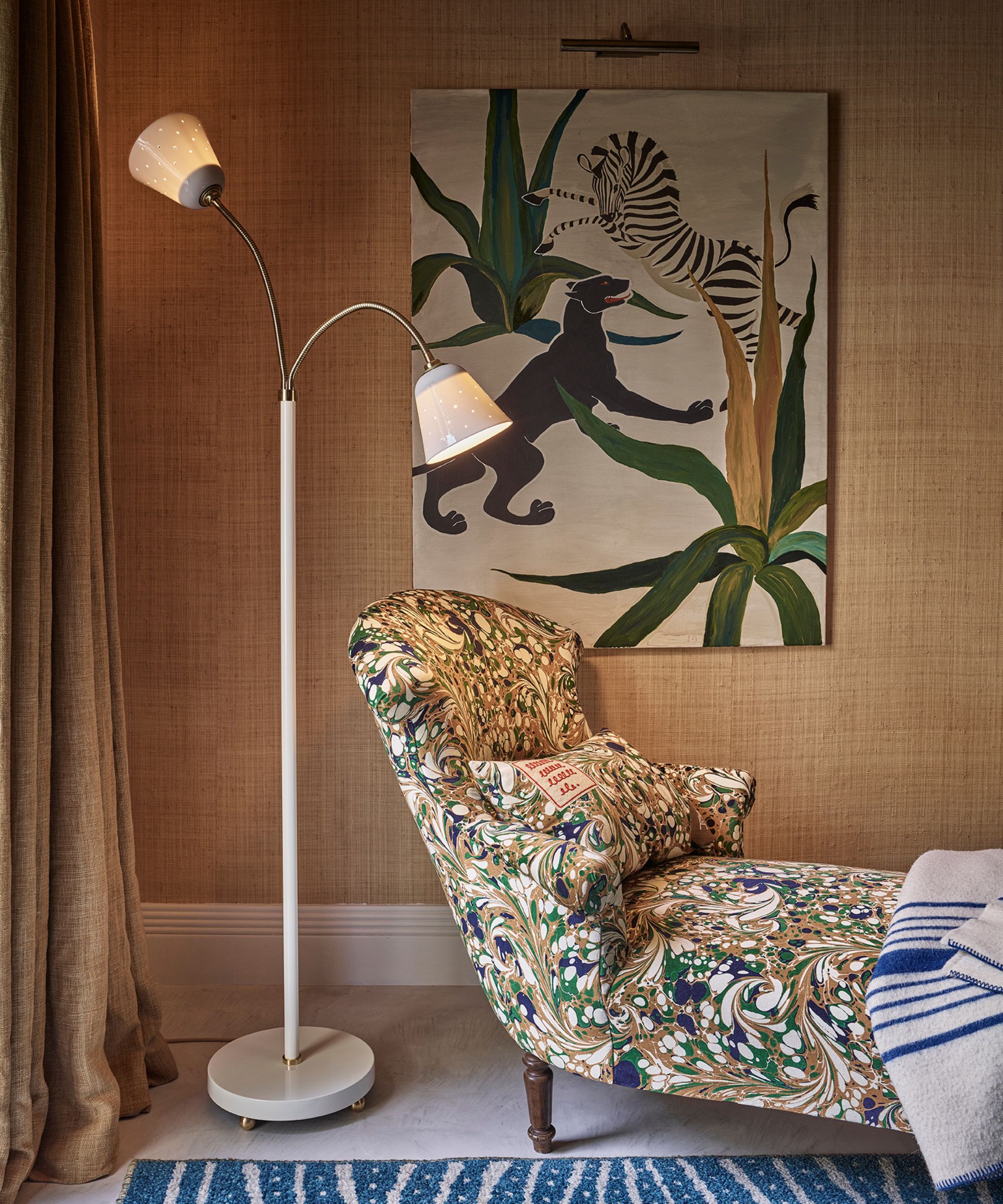
One common conundrum people experience when introducing antique textiles into a scheme is making them feel harmonious with the existing design. However, if you are decorating a room in its entirety, your antique fabrics might be the perfect reference point.
'If you want the fabric to be the inspiration for your scheme then look at the colors it might have and see if you can pull some of those into your scheme with paint or upholstery fabrics,' suggests Lucinda.
Antique textiles usually come in beautiful colors and eye-catching designs and patterns, so they might spark a wonderfully unique design idea. It's also just an easy but effective way to choose a cohesive color palette – after all, the fabrics caught your eye for a reason.
3. Opt for decorative pillows
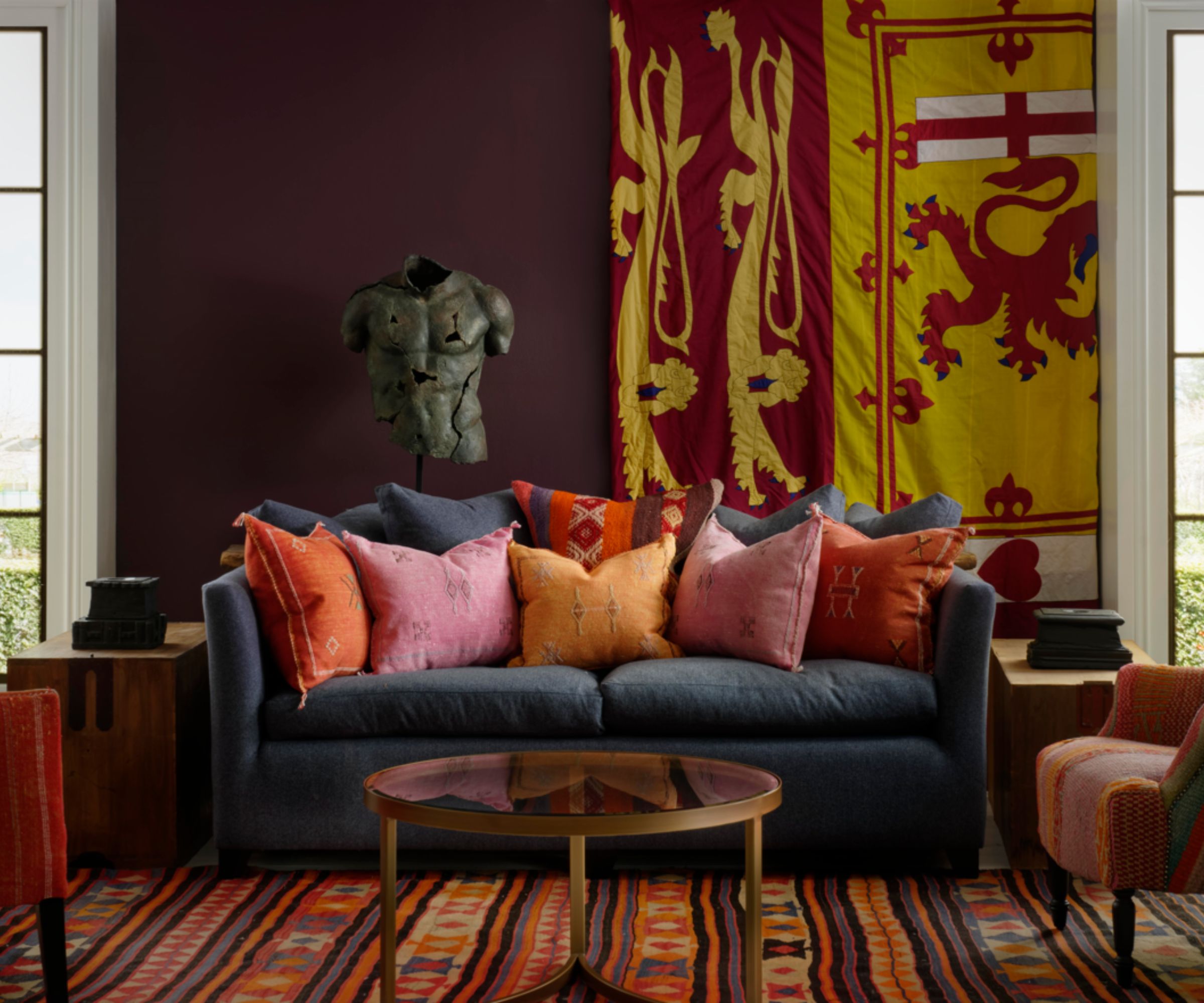
If you've never tried decorating with textiles before, or if you're looking for something more subtle, opting for a smaller room detail is a good place to start. It's also a lot more affordable to buy small antique textiles than large ones.
'If you're looking to add antique textiles to your home but don't want to break the bank on upholstery, consider something like a pillow,' suggests Samantha. In this living room, a sofa has been filled with beautiful cushions upholstered in antique textiles, adding color and contrast to the space.
You don't have to add lots, though. One or two statement cushions can have just as much impact on a scheme. 'There's something about a beautiful faded floral print or a hand-embroidered pillow that adds a layer of warmth to any design and creates the sort of lived-in feel that's so popular today,' Samantha adds.
4. Mix antique textiles with modern furnishings
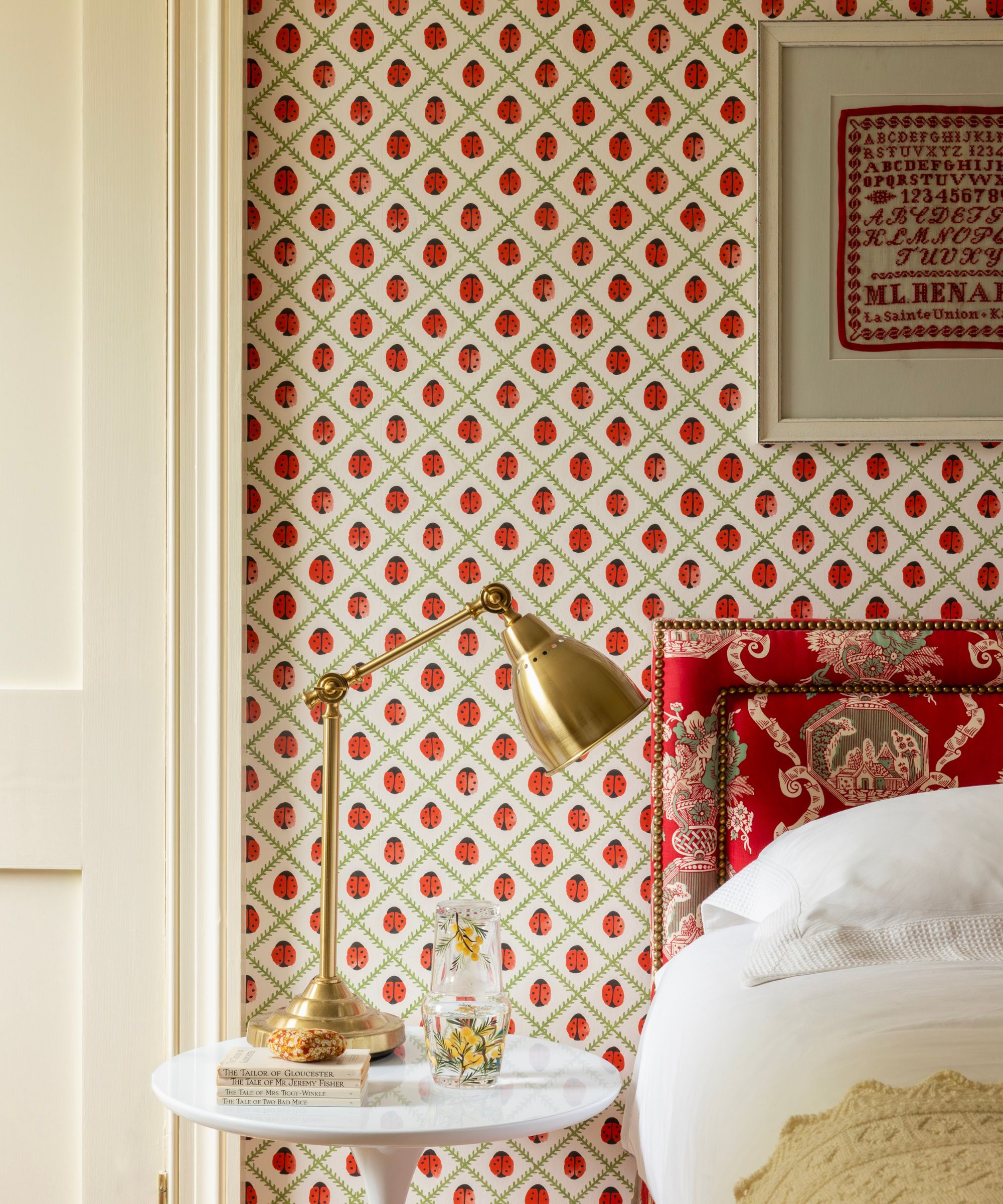
To embrace the idea of decorating with old and new, pairing antique textiles with more contemporary furniture adds a lovely contrast and character to a room, like in this bedroom. A modern lamp and side table have been mixed with a more traditional style bed and a framed antique textile sample on the wall.
'I love using antique textiles with modern furnishings to highlight and contrast, making them the focal point in a room. One of my favorite things to do is to use them as wall art. You can choose to frame them or not, but they immediately bring a cozy and artistic feel to a room,' says Ania.
'They bring so much history and nostalgia to a space, especially when they are family heirlooms or have been used by someone famous. There is something forever stylish about them transcending changing trends,' she adds.
5. Reupholster furniture
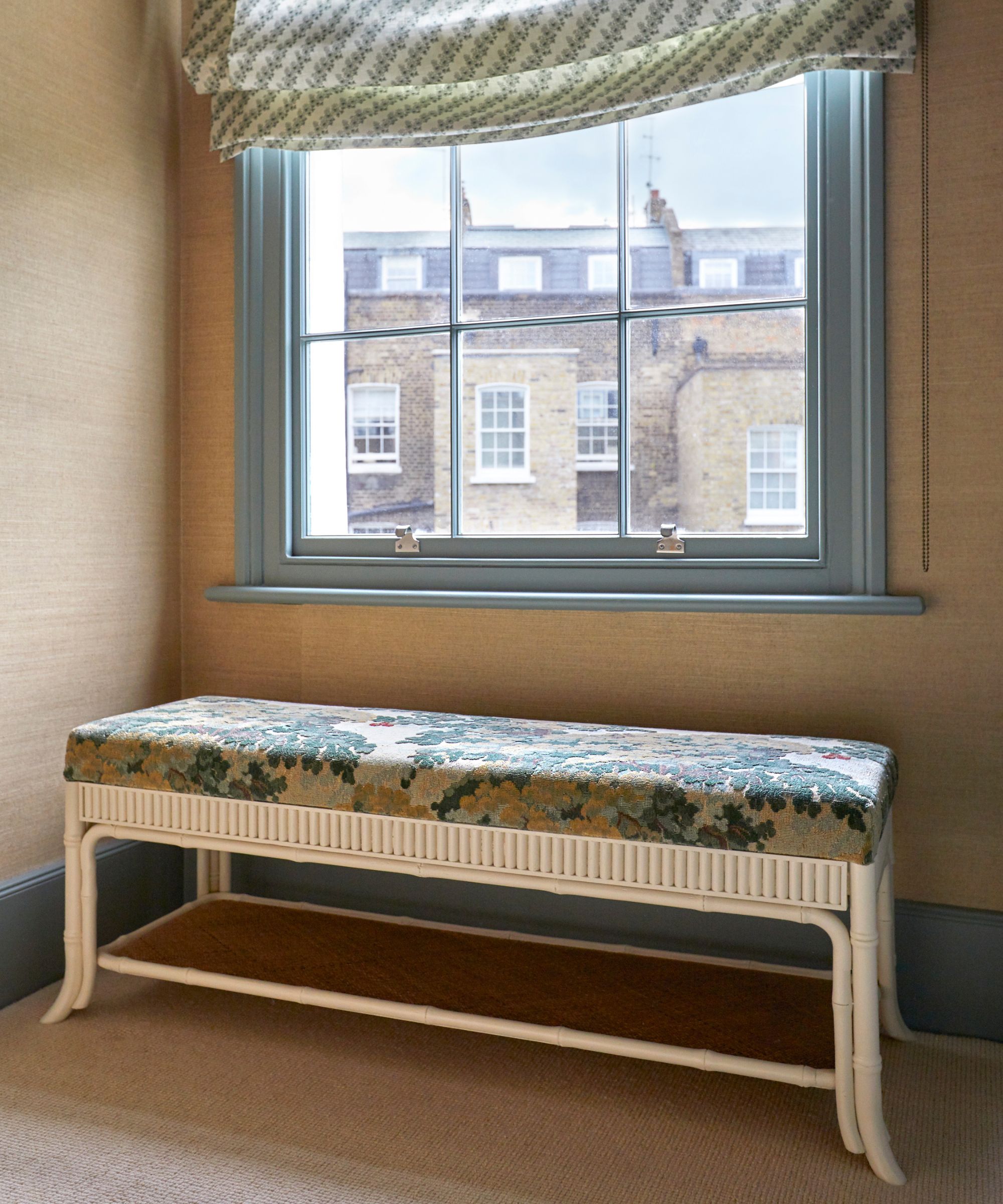
If you want to take it one step further than small cushion covers, hardier antique textiles can be used to upholster larger pieces of furniture. This not only creates a unique piece for your home, but it's a great way to upcycle an old piece of furniture.
'I love creating ottomans, upholstered headboards, and upholstered pieces in general with antique textiles, whether it's rugs, fabric remnants, and sometimes even clothing! With the smallest of fragments, we have created appliques for a centerpiece on a bed, chair, and pillows that add a unique and unforgettable detail,' says interior designer Kishani Perera.
Decorating with antique textiles in this way can be really fun – from a small vanity stool to a larger ottoman or chair, creating a one-of-a-kind furniture item will add so much personality to your space.
There's no denying the appeal that antique textiles can add to a design, and there are so many beautiful ways to decorate with them. Whether you keep things simple with a tapestry and throw pillows, or opt for a larger project with upholstered furniture, they're sure to add a unique feature to your space.

I’ve worked in the interiors magazine industry for the past five years and joined Homes & Gardens at the beginning of 2024 as the Kitchens & Bathrooms editor. While I love every part of interior design, kitchens and bathrooms are some of the most exciting to design, conceptualize, and write about. There are so many trends, materials, colors, and playful decor elements to explore and experiment with.